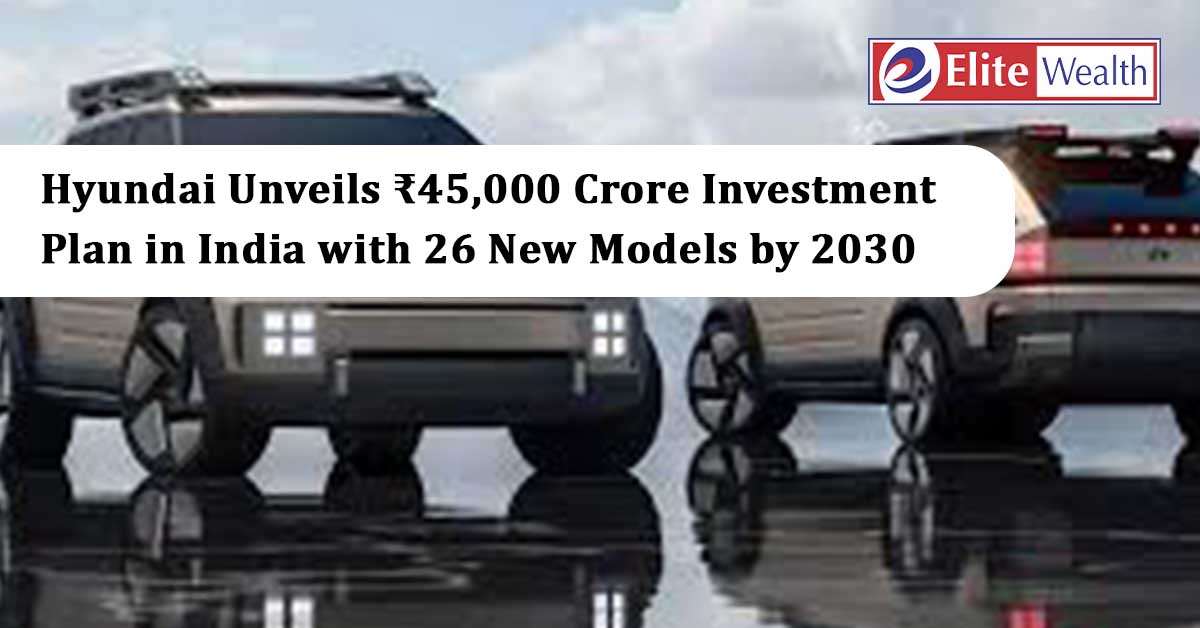
Summary:
Hyundai Motor Company has announced its largest-ever investment in India, committing ₹45,000 crore to expand manufacturing, research, and development, and launch 26 new vehicles by 2030. The plan emphasizes full localisation, advanced R&D, and electrification, positioning India as a global hub for Hyundai’s innovation and exports.
Ambitious Five-Year Roadmap for India
Hyundai’s Global CEO Jose Munoz revealed the company’s strategic roadmap for India, underlining the country’s critical role in Hyundai’s global operations. The company plans to:
- Invest ₹45,000 crore through 2030.
- Launch 26 new vehicles, including seven new nameplates, featuring an MPV and an off-road SUV.
- Develop eight hybrid models and an India-made electric SUV, contributing to 16% of the product portfolio by 2030.
Munoz highlighted that about 60% of the investment will be directed toward product development and R&D, while 40% will go into capacity expansion and factory upgrades.
Strengthening Local Operations and R&D
Hyundai aims for full localisation, extending beyond manufacturing to research, engineering, and product design in India. The company plans to hire more Indian engineers to support development of products not just for India but also for global markets.
“We need Indian speed, imagination, and competitiveness,” Munoz said, underscoring India’s strategic importance.
Currently, Hyundai has sold over 9 million cars in India and exported more than 3 million units to over 80 countries, with 30% of total production earmarked for exports.
Capacity Expansion and New Facilities
To support growth, Hyundai plans to:
- Expand production capacity to 1.1 million units.
- Build a new plant in Pune with a capacity of 250,000 units.
These expansions will ensure Hyundai meets both domestic demand and increasing global export requirements, especially to the Middle East, Africa, and Latin America.
Electrification and Future Mobility
Hyundai is accelerating its electrification strategy in India, including hybrids and EVs. Munoz emphasized the company’s vertical integration, from steel to chips, as a competitive advantage against Chinese EV manufacturers.
He also encouraged the Indian government to provide incentives for advanced vehicle technologies, akin to programs like FAME, to accelerate EV adoption and support India’s automotive growth.
Looking Ahead
Hyundai’s ₹45,000 crore India plan positions the country as a key global hub for manufacturing, innovation, and exports. With a strong focus on full localisation, electrification, and advanced R&D, Hyundai aims to consolidate its leadership in the Indian automotive sector while contributing significantly to its global strategy.
Disclaimer:
This article is intended solely for educational and informational purposes. The securities or companies mentioned are provided as examples and should not be considered as recommendations. Nothing contained herein constitutes personal financial advice or investment recommendations. Readers are advised to conduct their own research and consult a qualified financial advisor before making any investment decisions.
Investments in securities markets are subject to market risks. Please read all related documents carefully before investing.


